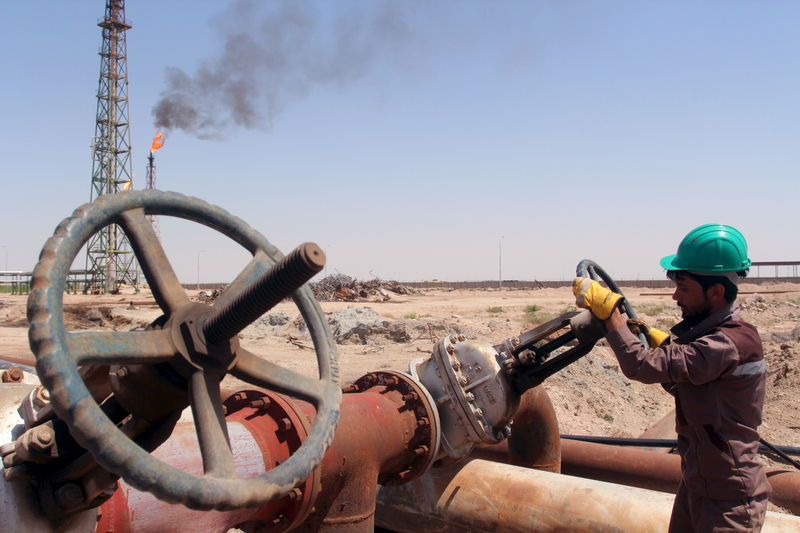By Saeed Azhar
DUBAI (Reuters) - Saudi Arabia's economy contracted by 0.46% in the third quarter from a year earlier, hit by a drop in oil output as the de facto leader of the Organisation of Petroleum Exporting Countries (OPEC) cut production, government data showed on Tuesday.
Oil sector output declined 6.43%, but non-oil output grew 4.33%, led by private sector activity, the data from the top world crude exporter's General Authority of Statistics said.
On a seasonally adjusted basis, the economy contracted by 0.19% in the third quarter on a quarterly basis.
The data came after the Saudi government in its budget cut its forecast for economic growth to 0.4% in 2019 from 0.9%, with growth hit by lower oil prices and crude production cuts agreed by OPEC nations and producers outside the exporting group.
OPEC and its allies have further agreed to deepen crude output cuts by 500,000 barrels per day until March 2020, which could weigh on the Saudi economic recovery in early 2020.
The government expects real GDP growth at 2.3% in 2020.
Mining and quarrying, which accounts for 38.2% of GDP, saw the biggest decline, 6.39%, fuelled by a 6.52% drop in crude petroleum and natural gas output, the data showed.
Petroleum and refining dropped 6.11%, leading to a 2.4% decline in manufacturing output. Manufacturing accounts for 12% of GDP on a constant basis.
The growth in the third quarter came from the wholesale and retail trade, which expanded 8%, while finance, insurance, real estate and business services grew 6.28%.
Economists have said Saudi investments into non-oil projects led by the Public Investment Fund will increasingly drive economic activity in 2020.
As part of Crown Prince Mohammed bin Salman's economic diversification plan, proceeds from the sale of oil giant Aramco's 1.5% share sale will be invested in non-oil sectors in a bid to lessen dependence on oil revenue.
Construction work on the first main components of the Qiddiya entertainment city project and heritage site, Diriyah Gate, is due to start in early 2020, with the Red Sea tourism project also expected to start full-scale construction next year.
